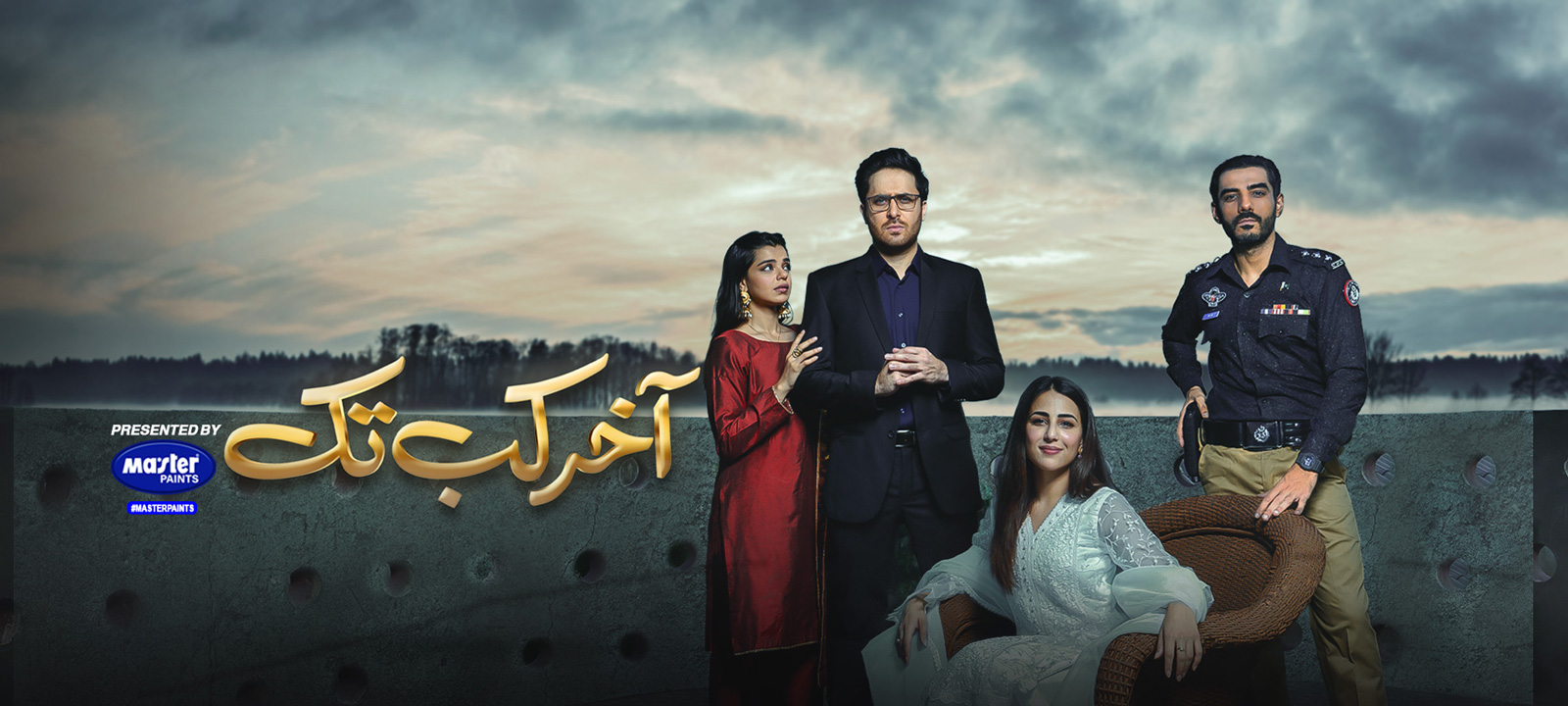“Aakhir Kab Tak” is a story about female empowerment and how women rise above their circumstances to (hopefully) achieve success. This drama stars Ushna Shah, Srha Asghar, Haroon Shahid, Adeel Hussain, Azfar Rehman, Shahood Alvi, Javeria Abbasi and others, has been written by Radain Shah and directed by Syed Ali Raza Usman. In recent episodes, we’ve seen how two sisters, Noor and Fajar, have been raised in an oppressive household. While Noor developed the drive to fight for herself, Fajar retreated into her shell with a meek attitude. This causes Fajar to fall prey to predators and she is sexually assaulted by a professor. This is the premise of the story up until now.
Episode 8 revolves almost entirely around Fajar’s (Srha Asghar) new marriage. Fajar is visibly distressed in her new home, uncomfortable with the idea of being married and consistently just wishing she could go back home. Saim (Haroon Shahid) is an understanding husband, but he simply wants to understand what is going through Fajar’s mind – which she is unable to express to him. Where would she begin? At her household environment? The assault? And would a man who barely even knows his new wife accept her? These are fears that are certainly running through Fajar’s mind – but more than that, Fajar just does not feel safe. In a time when she should have been protected and cared for by her family, she has been uprooted and planted in a new home and environment.
From Noor’s (Ushna Shah) point of view, she believes Fajar is exactly where she should be, away from their toxic family and environment. However, this just shows the difference in perspectives and personality. Noor applies for her further education and wishes to build her career, however Noor’s father (Shahood Alvi) has a stroke and winds up paralyzed on one side. This places much more of a burden on Noor, who finally stands up to her mother (Javeria Abbasi) and tells her she’s no longer interested in being her emotional punching bag. This is a wonderful moment to watch for Noor in particular, as Noor has been exactly that – a punching bag for the entire family, but particularly her mother, who is unable to use her voice on anyone else.
Ushna Shah is the relief in this story, a strong woman who pushes and slogs through her miserable circumstances with confidence and a smile on her face. She is traumatized in her own way, but she keeps her eye on her own goals, hoping to create a better life for herself. Ushna Shah is a great actress and she has viewers rooting for Noor’s success. Srha Asghar has always been a dependable actor, someone who performs naturally and makes the viewer believe in the character she is playing. Srha continues to do a good job as Fajar, but there is something that feels a bit over-the-top with her performance – now is that the fault of the actor, writer or director? That isn’t clear. Fajar appears to always be in a state of fear, unable to communicate to the females in her new household, petrified even while safe in a living room and being spoken to with kindness. This is uncomfortable to watch, but what makes it moreso is that Fajar’s behavior is unexplained. Yes, we all recognize that Fajar has been the victim of a traumatic assault and, instead of seeing a psychiatrist, she has been thrown into a marriage she was clearly not ready for. However, this behavior isn’t new for Fajar – she behaved this way even before the assault. Quite honestly, more backstory is required here, otherwise Fajar’s behavior (and Srha’s performance) is a bit on the “overdone” side. Now will we get this backstory in the next episode? In the preview, we see Basam continue to harass Fajar – but why does Fajar allow him to? She is now a married woman. We’ve seen Basam harassing Fajar, but has Basam assaulted Fajar in the past? Is Basam responsible for Fajar’s fear and mental state? It’s certainly possible.
Summers In UAE: 5 Sunscreen Myths That You Should Stop Believing Pronto
Overall, “Aakhir Kab Tak” is one of the more promising shows on air right now and tells an important story about how women are treated within their own households in sections of Pakistani society. It will be interesting to see how the story plays out from this point onwards. One hopes Fajar’s backstory is discussed further to cast light on her behavior.

